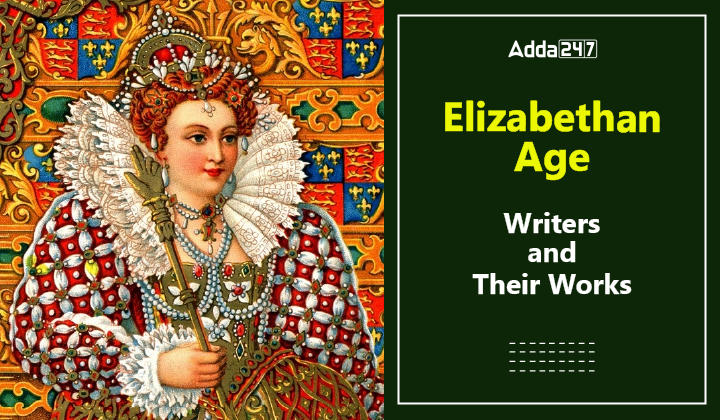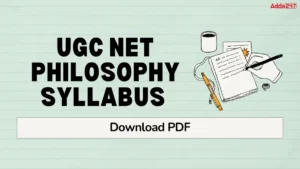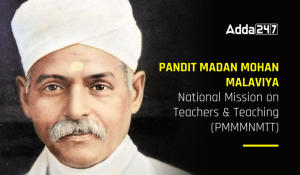Table of Contents
English Literature bestows a special significance upon the Elizabethan Age, primarily because it served as the backdrop for Shakespeare’s prolific works. Consequently, this era garners heightened attention within the realm of UGC NET, with a likelihood of numerous questions centered on it. While William Shakespeare undoubtedly commands attention, it’s noteworthy that he wasn’t the sole luminary of the period. The Elizabethan Age boasted a plethora of writers, some preceding Shakespeare and influencing his own oeuvre. Let’s delve into the major writers of the Elizabethan Age and their notable works.
What is the Elizabethan Age?
The Elizabethan era in English literature spans from approximately 1550 to 1630, coinciding with the reign of Queen Elizabeth I (1558-1603). This period is marked by a significant flourishing of literary works, collectively known as Elizabethan literature, and the writers of this time are referred to as Elizabethan writers. Notable characteristics of this era include a strong influence from classical works, prolific literary output, and a thriving literary culture nurtured by a stable and conducive socio-political environment.
Elizabethan Age writers and Their Works
The Elizabethan Period holds special importance in the entire history of English literature for its superior production of dramatic output. It was in the true sense the first and greatest romantic epoch. Writers went back to the classics and freely took inspiration from the works of Virgil and other Roman and Greek writers.
Even though the age is overshadowed by drama and dramatic like William Shakespeare, there was enough poetic vigor and quality produced of merit that demands attention. Poets such as Edmund Spenser was the most recognizable voice of this age. So, let’s take a look at the Elizabethan Writers and their works.
The University Wits
Even before the great Bard, William Shakespeare, a few college-educated chiefly from Cambridge & Oxford, paved the way for him. They were collectively called University Wits. They did much to found the Elizabethan School of Drama. This group of writers was more or less familiar with themselves.
| The University Wits & Their Works | |
| Author name | Their works |
| John Lyly |
|
| George Peele |
|
| Robert Greene |
|
| Thomas Nash |
|
| Thomas Lodge |
|
| Thomas Kyd |
|
| Christopher Marlowe |
|
William Shakespeare (1564-1616)
The single most popular writer of his time and since in English Literature. Shakespeare took drama to new heights, which was hardly touched by anyone ever since and certainly not in the dramatic output that he did. He wrote long narrative poems like Venus and Adonis (1593) and The Rape of Lucrece (1594). Though the concrete date of the works is not known, it is fairly an estimation.
| William Shakespeare & His Works | |
| Published Year | Works |
| 1591-1592 |
|
| 1593 |
|
| 1594 |
|
| 1595 |
|
| 1596 |
|
| 1597 |
|
| 1598 |
|
| 1599 |
|
| 1600 |
|
| 1601 |
|
| 1602 |
|
| 1604 |
|
| 1605 |
|
| 1606 |
|
| 1607 |
|
| 1608 |
|
| 1609 |
|
| 1610 |
|
| 1611 |
|
| 1613 |
|
Ben Jonson (1573-1637)
After Shakespeare, Jonson emerged as an identifiable figure in the drama. Though the quality of work can not be compared to Shakespeare, it is still of merit that requires an in-depth study. Like Donne, he revolted against the artistic principles of his contemporaries. He sought to classic to vent his uncontrolled and romantic exuberance of the ethos of his time period. For him, the chief function of literature was to instruct.
| Ben Jonson & His Published Work | |
| Date of Publication | Work |
| 1598 | Every Man in His Humour |
| 1599 | Every Man out of His Humour |
| 1600 | Cynthia’s Revels |
| 1601 | The Poetaster |
| 1605 | Volpone, or The Fox |
| 1608 | The Masque of Beauty |
| 1609 |
|
| 1610 | The Alchemist |
| 1611 | Oberon, the Fair Prince |
| 1614 | Bartholomew Fayre |
| 1616 | The Devil is an Ass |
Francis Beaumont (1584-1616) and John Fletcher (1579-1625)
They mostly did the collaboration and produced comedies and tragedies of varying merit. They produced a lot of work. However, the authorship, how much joint work is to be assigned to whom is not accurately known.
| List of Works by Francis Beaumont and John Fletcher | |
| Date of Publication | Work |
| 1611 | A King and No King |
| 1607 | The Knight of the Burning Pestle |
| 1613 | The Scornful Lady |
| 1610 | The Maid’s Tragedy |
| 1611 | Philaster |
Other Dramatists of the Elizabethan Age
Beyond the sole name of Ben Jonson in the post-Shakespearean Era of the Elizabethan Age, there were a number of dramatists writing on a range of topics. The quality of work is not great throughout their career and only a handful shine. Regardless of the number, there were a few dramatists you should take note of and their famous works.
| Other Dramatists of the Elizabethan Age & Their Works | |
| Author name | Works |
| George Chapman (1559-1634) |
|
| John Marston (1575-1634) |
|
| Thomas Dekker (1572-1632) |
|
| Thomas Middleton (1570-1627) |
|
| Thomas Heywood (1575-1650) |
|
| John Webster (1578-1632) |
|
| Cyril Tourneur (1575-1626) |
|
Conclusion
The Elizabethan Age, also known as the Renaissance period in England, was a flourishing time for literature, marked by a host of brilliant writers and their remarkable works. William Shakespeare, the most celebrated playwright of the era, produced timeless masterpieces like “Romeo and Juliet,” “Hamlet,” and “Macbeth.” Christopher Marlowe, a contemporary of Shakespeare, gained fame for plays such as “Doctor Faustus” and “Tamburlaine.” John Lyly’s witty comedies, including “Euphues: The Anatomy of Wit,” further enriched the literary landscape of the Elizabethan Age. These writers and their works left an indelible mark on English literature, and their contributions continue to be cherished and studied to this day.
Download UGC NET English Study Note PDF
To Download the UGC NET English Study Note PDF, candidate must click on the following link. It is beneficial for the candidates to download and save the NET English Study Note PDF to easily refer to it during preparation and revision.
- Download Study Notes : Click Here to Download Study Notes on Elizabethan Age Writer
- Download NET English Syllabus : Click Here




 UGC NET Philosophy Syllabus 2025 PDF Dow...
UGC NET Philosophy Syllabus 2025 PDF Dow...
 UGC NET Commerce Syllabus 2025 PDF Downl...
UGC NET Commerce Syllabus 2025 PDF Downl...
 PMMMNMTT for NEP 2020, Check details Her...
PMMMNMTT for NEP 2020, Check details Her...














